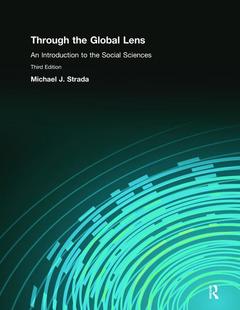Michael Strada has taught international studies courses at West Liberty State College since 1969 and at West Virginia University where he was a visiting professor from 1985—2001. In 1990 he taught for the Semester at Sea program and he has traveled to more than 40 countries, including ten trips to Russia. Strada’s academic degrees consist of three in political science (international relations) and one in counseling psychology, but all of his courses are taught in an interdisciplinary manner. In 2003 he was nominated by his institution for a national CASE Professor of the Year Award and in 2005 finished as runner-up in the statewide Professor of the Year Award. Dr. Strada was one of four political scientists recruited by Professor Sophia Peterson of W.V.U. as co-founders of the FACDIS international studies consortium in 1980. It now has over 375 faculty members from more than 15 disciplines in all of West Virginia’s colleges and universities. He served as FACDIS statewide Study Abroad Coordinator for 12 years, as FACDIS Co-Director for four years, and authored its two successful entries for national awards: The G. Theodore Mitau Award for innovative programming in higher education (1987), and the Theodore Hesburgh Award’s Certificate of Excellence for faculty development activities (2000). Professor Strada has received the West Liberty Award for Excellence in Professional Activity on three occasions. In 2002, he was the recipient of the West Virginia Political Science Association’s inaugural Distinguished Political Scientist Award. Since 1998 he has published one scholarly book (Friend or Foe? Russians in American Film and Foreign Policy, 1933—1991, Scarecrow Press, 1998); one reference book (Benefits of Model Syllabi, University Press of America, 2006); three articles in refereed academic journals, two non-refereed articles, and four essays in high-circulation magazines. Refereed pieces have appeared in Peer Review (2002), Liberal Education (2001), and To Improve t

